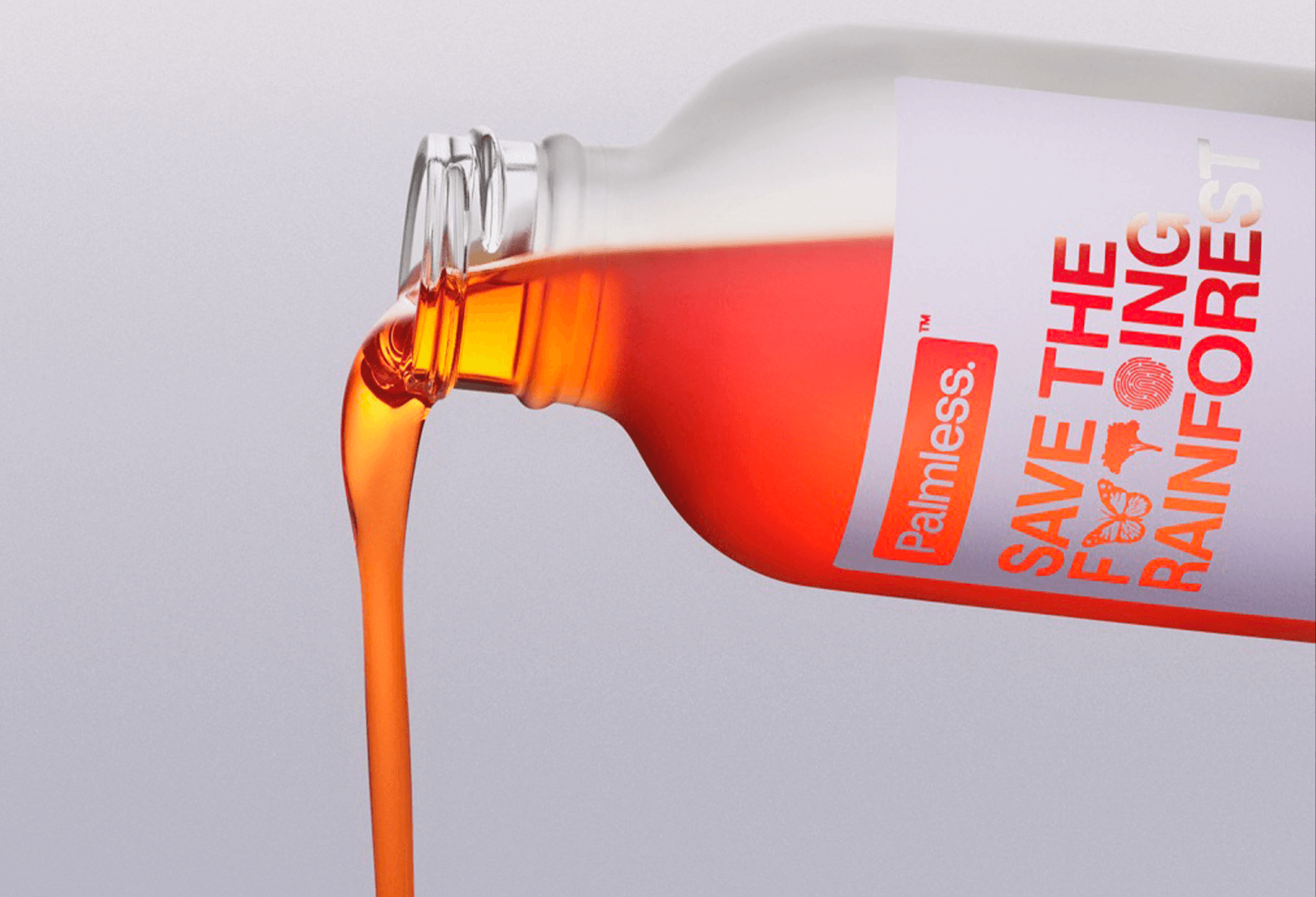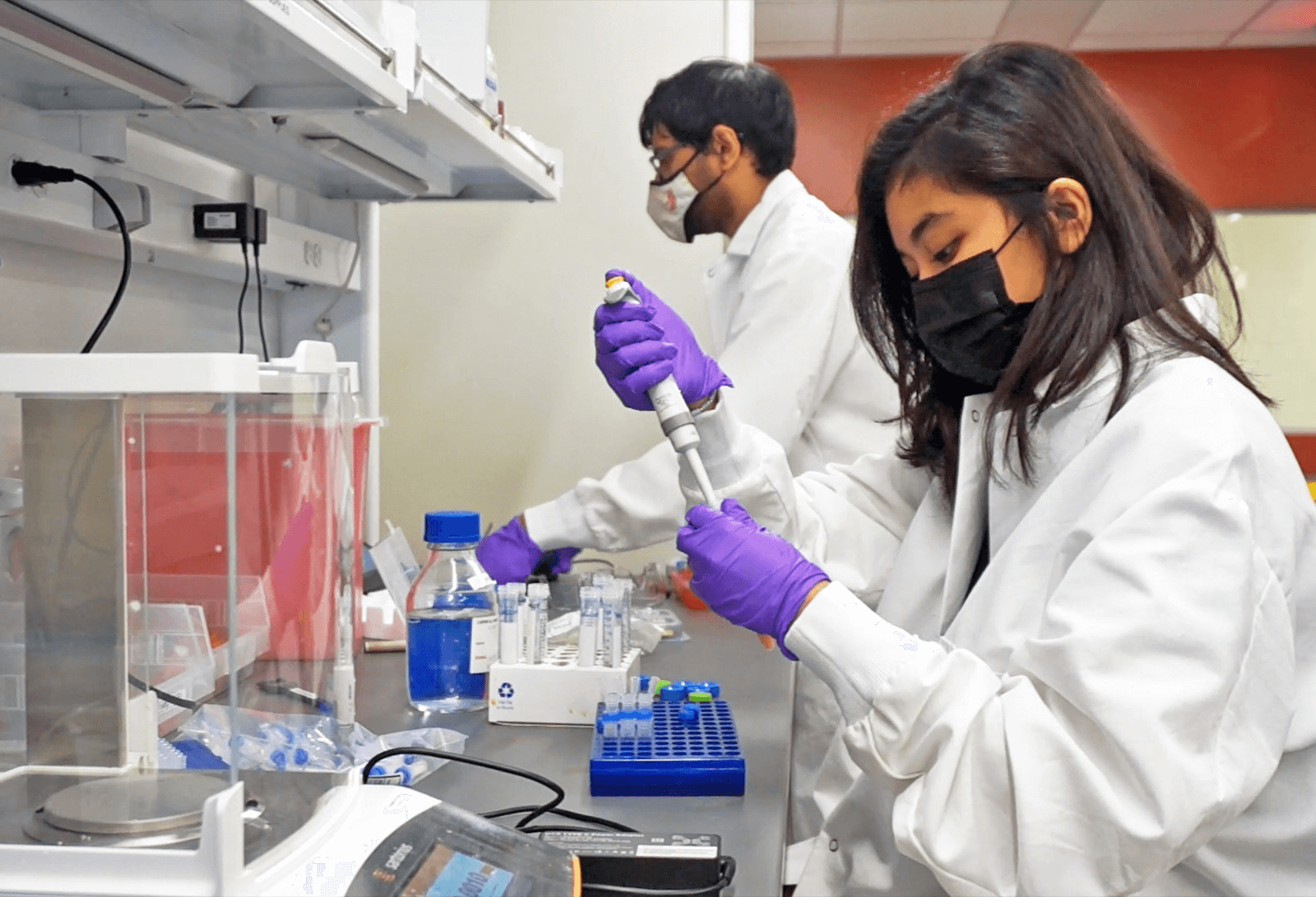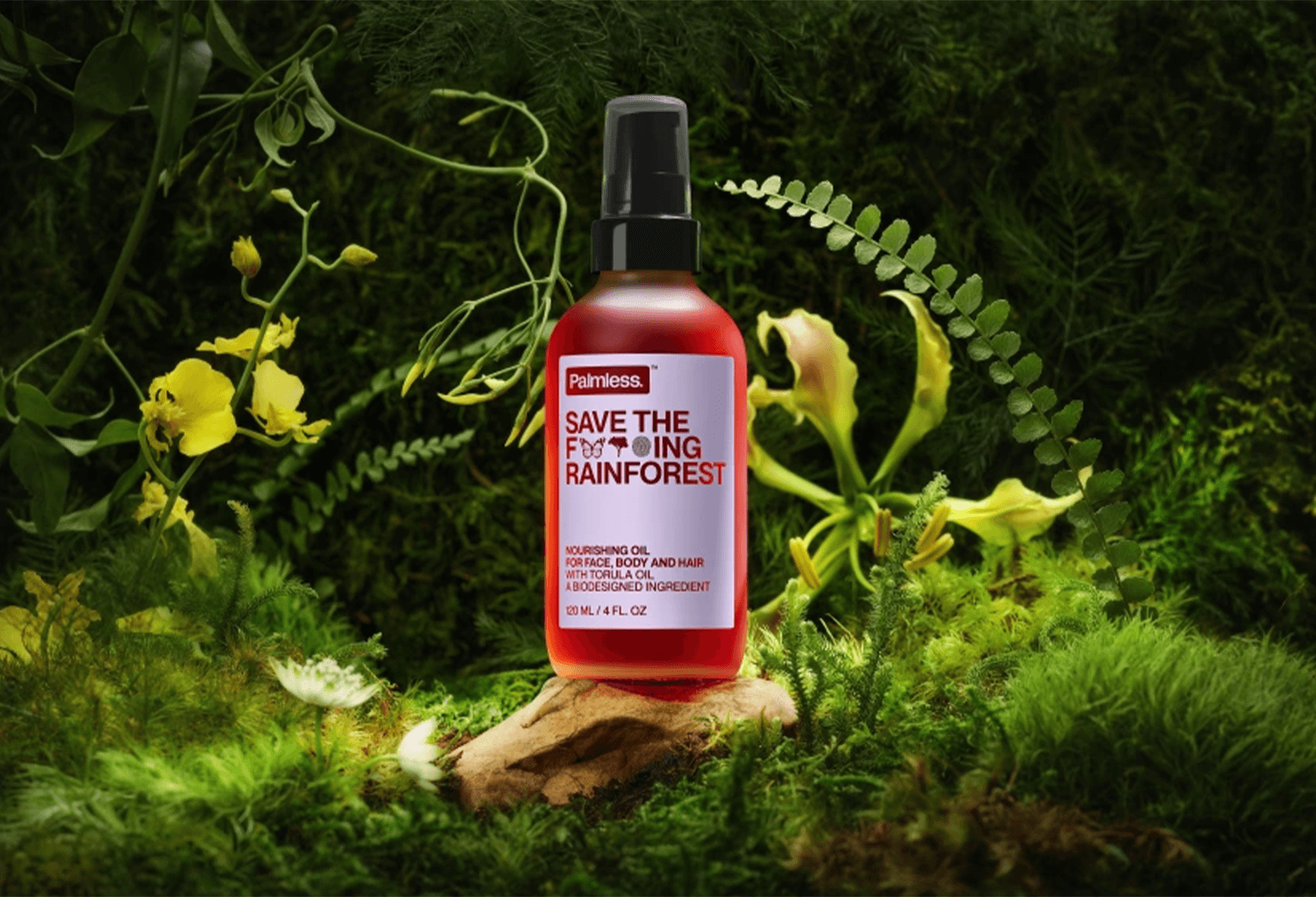With a global market expected to be worth $106.3 billion by 2032, palm oil means big business. But at what cost? Palm oil production has contributed to deforestation in rates as high as 50% (in the Malaysian Borneo region), as well as resulted in greenhouse gas emissions, air pollution, and biodiversity declines. A 2016 report by Amnesty International into the Indonesian plantations―which provide palm oil to processor and merchandiser Wilmart that at time of reporting controlled more than 43% of the material’s global trade―uncovered child labor, abusive working conditions, and pay below the minimum wage.
The industry responded with many manufacturers committing to sourcing the ingredient from ethical suppliers moving forward. Roundtable for Sustainable Palm Oil (RSPO), Forum for Sustainable Palm Oil (FONAP), and Natrue are helping lead change by setting standards and criteria for making sustainable palm oil claims. But with a lack of supply chain transparency, continued environmental impact, and official regulation bodies across the industry, the palm oil problem is far from solved.
What if it could be replaced with a completely different ingredient altogether? C16 Biosciences thinks so. The company’s consumer-facing brand platform Palmless recently devised the lab-grown and fungal kingdom-derived Torula Oil, which offers a carotenoid-rich alternative that has antioxidant and skin-barrier-strengthening qualities. On March 1, it is bringing this ingredient to beauty shoppers with the launch of the limited edition, multipurpose Save the F#$%ing Rainforest Nourishing Oil, in which―alongside other sustainably-sourced oils like jojoba, oat kernel, and meadowfoam seed―the innovative ingredient offers replenishing hydration to the skin and hair.
Shara Ticku, co-founder and CEO of C16 Biosciences, sat down with BeautyMatter to discuss the journey from an ingredient problem to a biotech-driven solution, and why the search for sustainable materials will require a joint industry effort.
With this new launch, why palm oil? What made it imperative to find an alternative for that ingredient specifically?
This company wouldn't exist if it weren't for palm oil. We started this company because we had seen the impact of palm oil production firsthand. Ten years ago, I was working on Wall Street, I covered our accounts in Asia, and was on a flight to Singapore. This was 2013, and my company sent me with a stack of N95 masks to wear when I landed. I was very confused by this, but when I landed, it became clear immediately why I needed to wear one. The air was this thick haze; the air quality index was over 400. Anything over 150 is considered hazardous, and anything over 300 is considered toxic.
I asked my colleagues what was going on, and they responded, “Our neighbors in Malaysia and Indonesia are burning forests for palm oil production.” By the way, this happens every year. Fast forward a couple of years, when I met my co-founder [Harry McNamara]; he had just come back from a trip to Costa Rica and had essentially the same experience. It started with curiosity around this outrageous burning of rainforests for the production of a vegetable oil. Could there be a better way? Could we use biotechnology instead of agriculture to solve this problem? That's how we got started.
What was the founding of the company like, and as it progressed, investor interest?
I call us accidental entrepreneurs. None of us were looking to start a company. When I met my co-founder, we were all in grad school. He was getting his PhD in physics at Harvard. I was getting my MBA at Harvard. David [Heller], our third co-founder, was an MIT undergrad.
As we dug further into the palm oil problem, we realized it's ubiquitous. It's in 50% of products on supermarket shelves. Hundreds of companies have said they wanted to stop using what they call conflict palm oil by 2015, 2016, 2018, but they were all failing. So we looked into it. We started with a $1,000 grant from MIT. We did an experiment, made a small amount of oil, but got enough positive feedback to keep going. In 2018, we said, “We think there's something here. Let's go explore it.”
[The startup accelerator] Y Combinator hasn't historically done a lot in the beauty or consumer industry, or in the biotech or climate tech industry, but we were one of its first bets. We were accepted into its accelerator and raised our first amount of money. We raised $4 million in a two-week period on the back of that, and that started the company and hiring the team. Then we raised our next round of funding in 2020, which was a $20 million raise led by Breakthrough Energy Ventures, a fund that was started by Bill Gates, and is explicitly focused on companies that can make money, but also remove at least half a million tons of greenhouse gas emissions.
With palm oil production, sometimes I've seen products that will say, “ethically harvested palm oil.” Is there even an ethical way to do it?
This was all about the traceability of ingredients in our product supply chain. What we're trying to prove is, are you sure that this ingredient came from a place where there wasn't unfair labor, where there wasn't burning of forests involved? That's essentially the core of what we're trying to prove through any of these validation criteria.
Over 10 years ago, different parties in the industry came together to create a validation criteria to define what certified sustainable palm oil looks like, which goes to show, they've known that this is a problem for a very long time. They kick-started this certification body—I would say the takeaway from this is that it's been a failed experiment. It's nearly impossible to prove that the palm oil in this product didn't come from land which was engaged in deforestation. The certification body has also been riddled with corruption, unfortunately. So it [ethical palm oil] exists, it's the best alternative today, but when we talk to major buyers of palm oil, the major consumer packaged goods companies, none of them are happy with it, because it's not a good enough option.
It also speaks to the general need for this infrastructural overhaul and transparency in the industry, and then the challenge being, how do you backlog that? Obviously technology has been helpful in terms of that with blockchain tracking, but that's not happening across the entire industry, nor is that something accessible to every brand owner.
It’s not good enough yet. We've seen, thankfully, a good push for validation of claims that it's sustainable. We talk a lot about different brands putting permanent counting—a number on their package, which quantifies their carbon footprint, much like nutritional labels. That's a massive step forward in being able to define, quantify, and measure.
But to your point, there are so many ingredients that need to be solved this way. How do you go about [changing] them? Technology is one [route]. Biomanufacturing, which is what we do, is another. It can give you the full traceability of how this thing was made―the full footprint. It introduces a predictability that we don't get with any agricultural-based ingredients today.
When it came to offering your solution for palm oil, could you take me into the process of finding your alternative?
Palmless is our solution set, and the first product that we're offering within the range is called Torula Oil. We needed something which can function like an oil. The problem wasn't the performance, but how it's made. When we look at the natural ingredients market today, it's very plant-centric. But the way that we use those plants is highly extractive. They're used in these very industrial agriculture-type processes, where you've got these monoculture farms pumping out production, with heavy use of fertilizer and all the things that come with that.
But what about the fungal kingdom? This is also natural, a biological system that's pretty creative and clever. Right around the time my co-founders and I met, the very first Impossible Burger had launched in New York, and they were using a similar technology of using the fungal kingdom.
We looked [at] microorganisms, yeast, algae, and fungi, that have hardly been identified and used before. We can sequence their genomes and essentially turn them into little manufacturing facilities. We scanned the universe and identified a yeast which was a natural producer of oil. We've been refining the process for growing it and extracting the oil in our lab here in New York for the last four years.



Biotech is really the future of sustainable ingredients, but sometimes there is the challenge of a barrier to entry, whether that's through the necessary funding or having the resources to explore it. Were there any challenges on your end in getting into that space and being able to bring these things to market in a scalable way?
We're starting to see biotech in beauty emerge, which is exciting for us, but it's definitely still nascent. We've had to figure out a lot of the playbook as we go, especially as we look at climate change being something we have to figure out in the next 30 years. It's very good that we have deep-pocketed individuals like Bill Gates and investors that can help drive a lot of this for sustainability.
People, talent, that's always part of it. Biotech in general is such a broad category. A lot of people go into pharmaceutical-related biotech, but I describe C16 as a consumer biotechnology company. Getting people with that skill set onto the consumer side, it's new. Our team loves it because the timeline to market is much faster, and they can see the impact. Capital and talent are probably two of the [biggest] challenges.
Building a lab in New York City, it's not to be taken for granted, but the city and state have invested in this a lot. New York is a very good place to build this company, given who our customers are.
There are so many ingredients across beauty or consumer products that could be looked at in terms of not having the most ethical or environmentally friendly sourcing practices. I’m curious as to why palm oil was the ingredient that was spotlighted.
It's essentially a platform. It's widely used, first and foremost, because it's really good at what it does. If people could change, they would, but they actually lose important performance elements in their products. This was a big “a-ha” for us because everybody knows it's a problem and they're trying to get rid of it, but they can’t because it's so good at what it does.
Close to 30% of palm oil production goes into personal care ingredients. It is used as the basis for surfactants: body wash, face wash, shampoo. No other ingredient can create the foaming and cleansing properties that they need. But then it's also used as an emollient, it's requisite for the functionality in creams and moisturizers.The Torula Oil by itself has a really nice texture. It’s this luxury emollient that feels like a silicone, but it’s not. This essentially comes down to the chemical makeup of the oil, which [is] why we thought it was important to replicate that because we don't want to lose the performance.
Are you looking to keep it as a standalone product or is it something that you're potentially interested in expanding across the industry, offering it as a palm oil alternative to different manufacturers?
Definitely. Palm oil is massive. It was a $60 billion industry when we started, and it's projected to grow to a quarter of a trillion, so $250 billion, over the next 30 years. There's a question of, if population growth continues and demand for products from the beauty industry is growing as it's projected to, where is this [ingredient] going to come from? It can't keep coming from deforestation or the current mechanisms. It's a huge growth opportunity, and we can't get there fast enough alone. We want to work with the existing big players in the industry to scale this as quickly as possible. Our first product. is the introduction of Torula Oil, and it showcases why it's a great ingredient. It shows how we can formulate with it, and it tells our story. But ultimately, we're going to drive this growth through the leading brands and innovators in this space―both the challengers and major users.
Not that it’s the most important aspect, but the oil is also a strikingly vibrant color.
One of the coolest things is the color comes from natural carotenoids, which are produced through our yeast. You're probably familiar with beta carotene; our oil also produces carotenoids which have never really been commercialized. It illustrates so well the power of biotech to make sustainability but also interesting performance elements like totally novel antioxidants.
Biomolecular scientist Jesse Adler recently created color cosmetics through fungi. It’s fascinating what beautiful hues and properties we can find in nature, in these things that seemed to have been forgotten by the industry for a long time.
It's beautiful, and it's natural, right? We’ve seen so much innovation for the last few decades through chemistry, which is great, but biology allows us to do a lot, and I think forgot about it. It’s this renaissance where we're able to unlock things from performance, novelty, new colors, but also a sustainability perspective.
In terms of the launch, what are your future plans with the product?
The Save the F#$%ing Rainforest Nourishing Oil is the first time we're getting the product to the world outside of C16. It’s highlighting our biodesigned Palmless Torula oil, but we featured a lot of other beautiful, high sustainability, high performance ingredients as well. The goal is to showcase and elevate how you can win on both performance and sustainability in the industry and raise the bar there. This is a call to action, we hope it raises awareness of the problem and starts to get this problem on the agenda of the challenger and indie brands, but also the major brands in the industry. For the largest beauty brands in the world, palm oil has risen to the top, but how do we start saying: now there's an alternative, it's time to take action.
From our perspective, from the climate change mandate, we don't have time to move slowly, nor do we need to. We have some of the best innovators in the beauty industry that want to incorporate our product. After we launch the oil, we will be launching with our first set of customers. We've got two in the personal care industry this year. We're going to launch with some of the most exciting, innovative brands in the space and fundamentally, that's how I believe change gets driven in this industry: you see these upstarts pushing it, the big brands are watching it. Sometimes they acquire those brands, sometimes it pushes them to take on the technology.
What are your thoughts on the future of biotech, especially within beauty?
Biotech is the future of beauty. We're starting to hit critical mass in terms of awareness and uptake of some of those ingredients. Historically, this industry, especially funding, has been driven through brands. That's starting to change; we're seeing platform technologies―whether data, traceability, a software or technology solution for retail. Maybe it's a fundamental innovation technology; we’ve seen a lot in haircare or skincare. We'll start to see investment shifting there as well; that'll help catapult it.
But the appetite from brands, it's there. They want novelty. They love the story of how the innovation of biotech can drive both performance and sustainability. It's exactly what they're looking for. How do we scale it up and get it into the industry with capital and otherwise, is the big question.